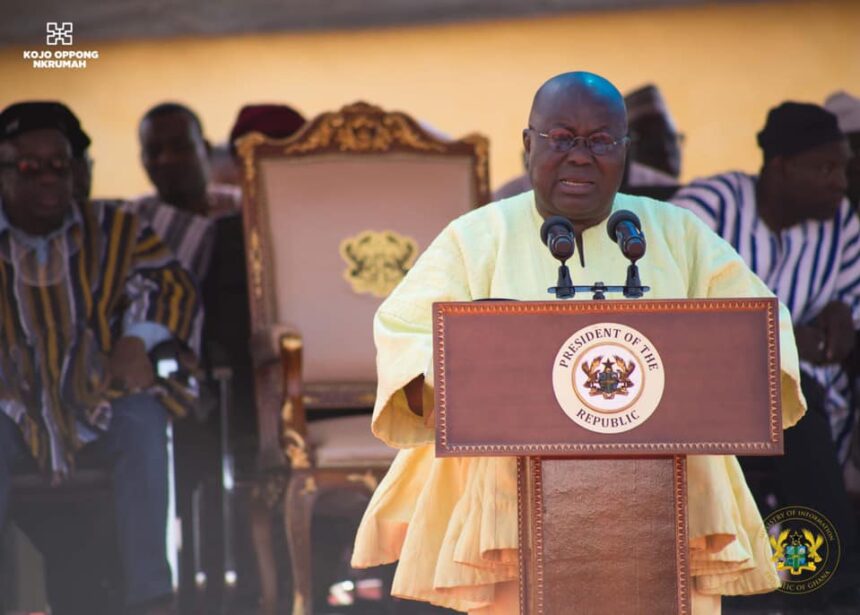SEE BELOW THE WICKEDNESS OUR INDIGENOUS BANKS” OWNED BY GHANAIANS, WERE SUBJECTED TO BEFORE THEY WERE BUTCHERED AT THE FIRING SQUAD WITH INJUSTICE, IMPUNITY WITH PEN IN THEIR HANDS, HEADED BY THE WICKED HON KEN OFORI-ATTA USING THE “PR” MACHINE GOVERNOR ERNEST ADDISON WITH THE BLESSINGS OF PRESIDENT AKUFO ADDO.
On August 14th, 2017 the Bank of Ghana (BoG) revoked the licenses of UT Bank and Capital Bank. GCB took over the two under a Purchase and Assumption transaction. Less than a month later on 11th September, 2017, the BoG announced an increase in the minimum capital requirement for banks from GHS 120 Million to GHS 400 Million (an increase of 233%) by December 31, 2018, giving Universal banks less than 18 months to source additional funds to beef up their capital. This was an unprecendented move. To indigenous banks, this was a clear case of raising the bar to high to ensure those targeted would be posted out of the banking system.
Sensing danger, some heads of indigenous banks then came together to form an “Association of Indigenous Universal Banks” to petition President Akufo-Addo to appeal to the Bank of Ghana and the Economic Management Team (EMT) for at least five years to pay up the new minimum capital requirement.. The President formed a 10 member committee to examine and act on the petition by the indigenous banks. (The committee consisted of 3 members from BoG, 3 members from banks, 3 members from Ministry of Finance and a chair from the presidency.) The committee was formed on 17th April 2018 and tasked to submit their final report by 26th May 2018.
The indigenous banks in their 11-page petition to the president, saw this new policy as out of the norm. They did not understand why the Bank of Ghana would give the same deadline to them as the foreign banks. They cited previous instances where when the minimum capital requirement was raised, indigenous banks were given an average of four years to pay. In 2003 for instance, when BoG raised the minimum capital requirement, banks were given almost four years to pay up, and in 2008 they were given almost five years to settle. At other times, the payment period was even flexible for existing banks, while new entrants were required to comply immediately.
These indigenous banks which included Prudential Bank, Royal Bank, Unibank, Beige Bank, OmniBank, GN Bank, Sovereign Bank, Heritage Bank, Premium Bank, and Construction Bank, proposed a payment schedule of annual instalments over a period of five years ending 2022 where they would each have finished paying the GHS400 million. The schedule they proposed included the following timelines:
That by December 2018, they will raise the minimum capital to GHS170 million each;
December 2019 – GHC220 million;
December 2020 – GHC280 million;
December 2021 – GHC340 million;
December 2022 – GHS400 million.
However, the petition by the indigenous banks didn’t seem to yield any results as the 31st December, 2018, deadline still stood.
The Bank of Ghana on 1st August, 2018, revoked the licenses of five other banks (Construction, Beige, Royal, Sovereign, and Unibank) and transferred their assets and liabilities into a new bank called Consolidated Bank of Ghana (CBG). This consolidation triggered “panic withdrawals” in the banking and non-banking finance sectors as customers feared for the security of their deposits. Strangely, the Bank of Ghana, the Ministry of Finance and Government in general stood by and did nothing to calm the fears of the depositors. On the other hand, many BOG officials and ministers of state went on the offensive, threatening closure of those banks who would not be able to raise the required additional funds. So-called investment and financial analysts also jumped in to declare the indigenous banks not fit and blots on the banking landscape. The Senior Minister advocated mergers. Yet, no assistance was offered to facilitate these mergers.
GN Bank, the People Bank, was also hit hard by these panic withdrawals.
Consequently, the Chairman of GN Bank Dr. Papa Kwesi Nduom took the initiative and led a team of bank officials to begin a tour of the ten regions on Wednesday 3rd October, 2018, under the theme “STOP THE PANIC WITHDRAWALS AND STRENGHTEN OUR INDIGENOUS BANKS”.
They educated the customers on the need to stop the panic withdrawals and assured them that all their monies are safe with the local banks. Still, BOG, the regulator and government officials did not help. The team also used the opportunity to thank the customers who had remained loyal and kept their monies with the indigenous banks.
Meanwhile, shareholders of GN Bank were at the same time looking funds to shore up their capital to meet the new capital requirement.
Several letters were written to the Presidency, requesting for their help to retrieve some of their funds which they had used to finance some projects that were undertaken by some Ministries, Departments and Agencies (MMDAs). Dr. Nduom met the President, Vice President, Minister Of Finance, Governor of BOG, Ministers of State and CEOs of the debtor state agencies. Though assurances were given, payments were not made. An independent audit commissioned at the request of the Ministry of Finance resulted in the GHS2.4 billion state agency and contractor liabilities which still remain.
With the deadline for the new minimum capital fast approaching, shareholders of GN Bank wrote a letter to the Bank of Ghana requesting for the bank to be reclassified as a Savings and Loans Company while steps are taken to retrieve funds from state agencies and others.
Reclassification
The Bank of Ghana on 4th January 2019, approved the request by the shareholders of GN Bank to be reclassified.
“Consequently, GN Bank has applied for, and the Bank of Ghana has approved the grant of a savings and loans company licence. The Bank of Ghana has also approved a transition plan submitted by GN for winding down aspects of its business which are not compatible with a savings and loans company licence,” Governor of the Central Bank, Dr. Ernest Addison revealed at their press conference on the update of the banking sector reforms.
Explaining the rationale for the reclassification to their customers and general public, GN Bank / Savings said it would remain Ghanaian, with a national retail network, to promote financial inclusion.. SAD MOMENT FOR GHANA!!! #HRHOSCARDOE







